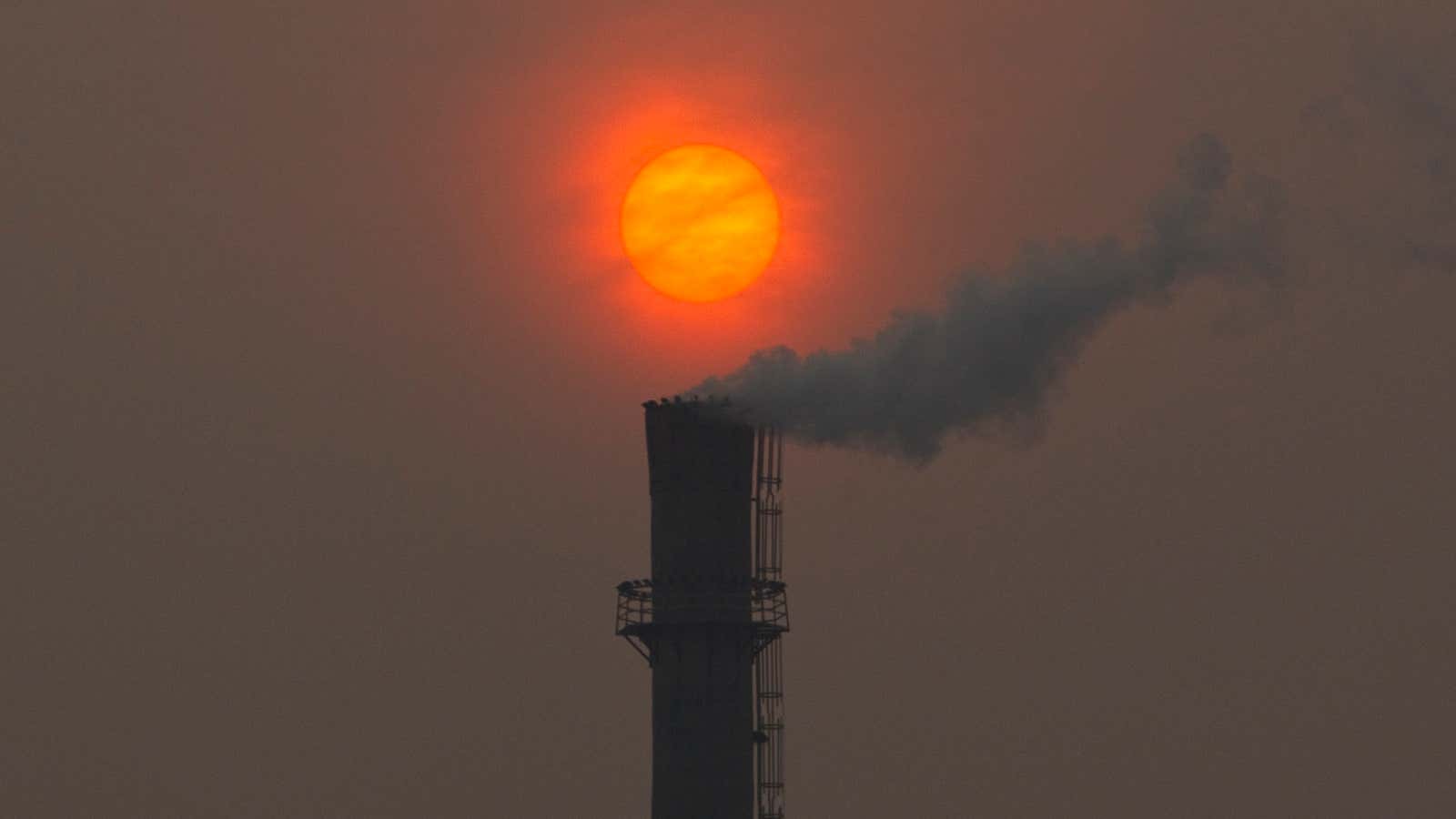Residents of China don’t need a weatherman to tell them which way the particulate matter blows. But new research shows exactly how dangerous the country’s air pollution can be, and it’s getting scary enough to send foreigners running for the border.
Air pollution contributed to 1.2 million early deaths in China in 2010, according to a new study from the Health Effects Institute, funded in part by the US Environmental Protection Agency and global carmakers. Researchers said “ambient particulate matter pollution” was the fourth-leading risk factor for deaths in China in 2010, behind dietary risks, high blood pressure and smoking.
Since then it’s unquestionably gotten worse, with record levels of dangerous PM2.5 particulates in the air. And gloomier skies lies ahead. A study by Deutsche Bank forecast that rising car ownership and coal consumption will push China’s air pollution 70% higher by 2025.
China’s terrible air quality is now making it difficult for companies to find and keep international staff, especially those employees who have small children. The Financial Times reports that expatriates are fleeing Beijing in particular because of the “Airpocalypse”.
Meanwhile, there are huge barriers to China actually solving its air pollution problem, especially China’s incredibly powerful state-backed oil companies. Sinopec and China National Petroleum Corp (CNPC) have been extremely successful at resisting paying up for the cost of refining cleaner fuels. That is in some way understandable. The Beijing government swipes chunks out of Sinopec and CNPC’s profits on a regular basis each time it caps national fuel prices and forces the oil firms to bear the cost.
The oil companies’ power has led to serious bureaucratic infighting in Beijng, as some officials argue for cleaner air while others support China’s version of Big Oil. There is a glimmer of hope, however. China is moving to set fuel prices in a manner that more closely tracks crude refiners’ costs.
If this trend continues, Sinopec and CNPC would have less right to argue the government owes them something and may become more willing to bear the costs of cleaner energy. And more expensive fuel could at least keep some cars off of China’s roads.
